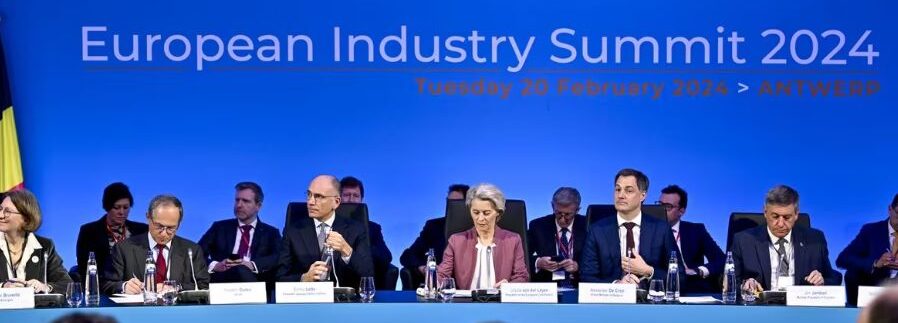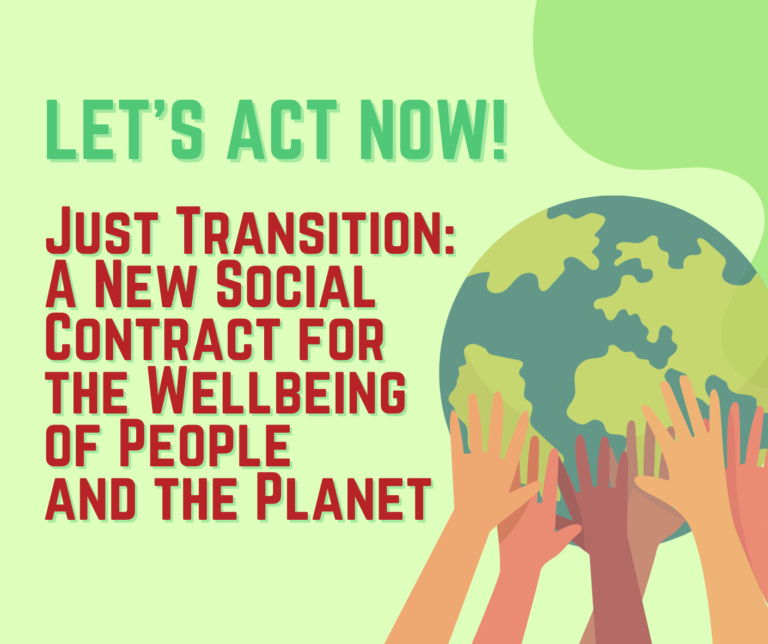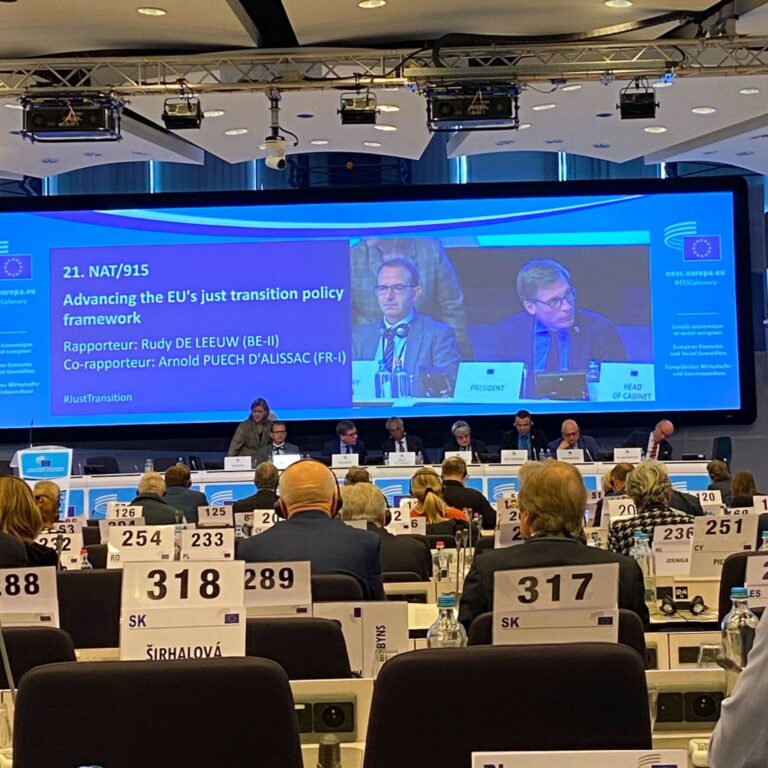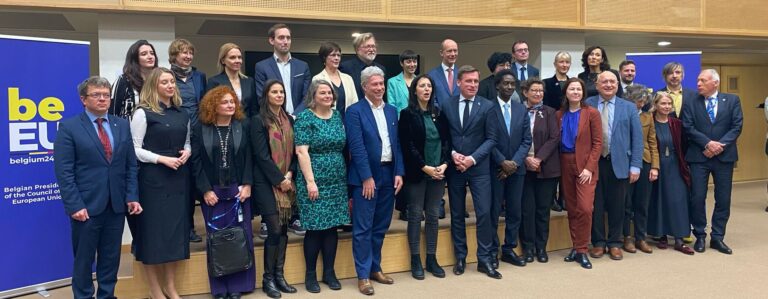An EU Industrial Deal should learn from the shortcomings of the EU Green Deal

April 9, 2024
There is growing political momentum for an EU Industrial Deal, but SOLIDAR believes that it should strengthen and take forward the European Green Deal, not replace it. To be socially just, it should reconcile the climate, social and economic agendas to ensure a sustainable and fair future for all.
A declaration for a business-friendly Industrial Deal
In January 2024, Belgian Prime Minister De Croo launched the Belgian Presidency of the Council of the EU by telling the European Parliament that “we need an Industrial Deal alongside the Green Deal”. A few weeks later, together with European Commission President Ursula von der Leyen, he unveiled the Antwerp Declaration, which calls for an Industrial Deal to be at the heart of the EU’s next political agenda and has been signed by more than 500 companies from energy-intensive industries.
The Antwerp Declaration calls for the creation of a clean technology financing strategy, the provision of renewable and affordable energy, a focus on sustainable and digital infrastructure, an increase in the EU’s supply of raw materials and a boost in demand for net-zero, low-carbon and circular products, among other things.
The push for an Industrial Deal in its current form appears to be largely a business-friendly move to appeal to those right-wing political parties and interest groups across Europe that have increasingly portrayed the European Green Deal as harmful to businesses and workers. But the farmers’ protests across Europe have shed light on a range of issues that go beyond the Green Deal, starting with the fact that 80% of direct payments under the EU’s Common Agricultural Policy (CAP) go to just 20% of farms (the largest), systematically leaving smaller farmers worse off and forcing them to produce more and more to remain competitive.
Europe’s industrial policy is crystallizing challenges
Industry is central to Europe’s transition to climate neutrality as it is both the backbone of most European economies (in 2020, the industry accounted for 35 million jobs and 80% of EU exports) and one of the most polluting sectors – underlining the need for a pathway to decarbonise our industry while maintaining economic activity and safeguarding decent jobs, workers’ rights and livelihoods.
But the challenges are many. Internationally, Europe faces fierce competition from the US and China for the strategic technologies and resources needed to lead the green transition. This is against a backdrop of economic downturn, high inflation, and relocation of companies and industries.
Former European Central Bank chief Mario Draghi, preparing his forthcoming high-level report on EU competitiveness, told EU Ministers that the EU would need to spend €500 billion a year on the green and digital transitions alone. The EU needs to invest an “enormous amount of money in a relatively short period of time” to address the deep challenges we face, Draghi said. But Member States remain reluctant to commit to new sources of funding, and the reform of the EU’s fiscal rules risks hampering the critical investments needed for the green and digital transitions.
An Industrial Deal that works for people and protects the planet
SOLIDAR strongly believes that a European Industrial Deal, if created, should in no way replace the European Green Deal, but rather strengthen and complement it, furthering its climate neutrality objective and contributing to its green policies. An Industrial Deal should be part of the comprehensive and cross-sectoral EU policy and legal framework for a just transition that SOLIDAR has been calling for, thus helping to ensure that social justice, climate neutrality and environmental protection goals are achieved together with economic goals.
It is essential that a potential EU Industrial Deal has a strong social dimension, demonstrating that we have learned from the one-eyed shortcomings of the European Green Deal. Fragmented and unambitious EU policies for a just transition, with a mainly compensatory and purely territorial approach, have proven to be the main Achilles heel of the Green Deal as protests against key legislative proposals grow.
Socially blind policies risk penalising the most vulnerable, exacerbating existing inequalities and creating new ones. To be socially just, an industrial agreement should support workers by guaranteeing decent incomes and working conditions, promoting training and retraining programmes and apprenticeships for workers, strengthening social safety nets, social protection and social services, safeguarding workers’ rights and strengthening social dialogue systems and collective bargaining.
Finally, we need an ambitious EU financing strategy to close existing investment gaps and properly fund our welfare states and public services. For example, well-funded education systems and a wide range of lifelong learning opportunities are essential to ensure a skilled workforce in Europe. Moreover, all public funding should be subject to social and environmental conditionality, which would prevent companies that do not respect environmental and labour laws from accessing public funds.
IndustriAll pointed out that “trade unions have repeatedly demanded a social deal to implement the Green Deal. This (Antwerp) declaration underlines the need to keep quality jobs in Europe, ties public funding to social conditions such as guarantees for good industrial jobs, calls for stronger social dialogue and a Just Transition for millions of workers affected by the transformation of industry”.
The European Trade Union Confederation warns against the risk of austerity arising from the new economic governance rules, stressing that an EU industrial strategy needs strong social conditionalities connected to investments, state aid and public funding.
We’re counting on the next EU leaders to build an industrial policy that reconciles climate, social and competitiveness policies under one coherent just transition policy framework.





